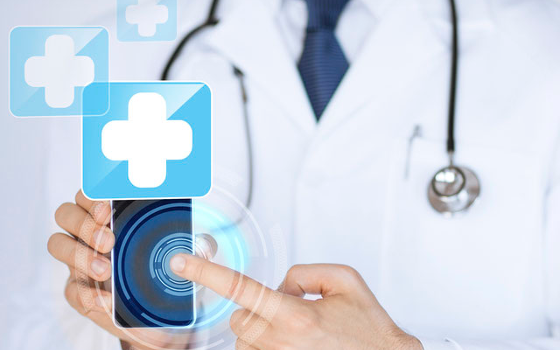The eHealth Adoption Awards give visibility and recognition to European adopters of cutting-edge innovation in eHealth. The winner team will receive a trophy in a plenary session at the eHealth Week. During one year this team will be promoted to participate in events related to the organisers like the World of Health IT (WoHIT).
All finalists will receive a diploma and a logo that confirms them as the winner or finalist of the Adoption Awards. All participants (those that submit an online application) get media exposure about their adoption through the organisers' channels. In addition, the 3 adopting organisations presenting at the eHealth Week receive a travel grant up to 400€ and a free pass to the eHealth Week conference.
The eHealth Hub project will also provide personalised support to the IT finalists for commercialisation and access to private funding at European level for at least one year. It is expected that, through dissemination and promotion, other health organisations become interested in their solution and join their sales pipeline.
Who is eligible to apply
Teams of European adopters and IT companies that have jointly implemented an eHealth innovation with successful outputs. By eHealth it is understood the use of IT solutions for health and care and may cover: digital health, active and healthy ageing, social care, mHealth, wearables, etc. Biotech and medical devices for hospital use (e.g., PET, TAC) are excluded.
Both the service provider (the adopter) and the IT company can be of any size. Proposals can be at pilot stage as long as they present clear successful outcomes. Both organisations in the teams that apply (adopter and supplier) must have their headquarters in one of the following countries: Albania, Austria, Belgium, Bosnia & Herzegovina, Bulgaria, Croatia, Cyprus, Czech Republic, Denmark, Estonia, Finland, Former Yugoslav Republic of Macedonia, France, Germany, Greece, Hungary, Iceland, Ireland, Israel, Italy, Latvia, Liechtenstein, Lithuania, Luxembourg, Malta, Moldova, Montenegro, Netherlands, Norway, Poland, Portugal, Romania, Serbia, Slovakia, Slovenia, Spain, Sweden, Switzerland, Turkey, Ukraine and United Kingdom.
Deadline for online registration: 10 March 2017
For further information, please visit:
https://www.ticbiomed.org/ehealth-adoption-awards/
About eHealth HUB project
During the 3-years' project, eHealth Hub team that includes European innovation specialists, legal and regulatory experts and eHealth support organizations will involve over 700 SMEs in its activities, developing several partnerships with major European and international eHealth networks, healthcare organizations, investors and other stakeholders. Another ambition of the eHealth Hub project is also to contribute, through its support to SMEs to increase the number of eHealth solutions available in the market for patients and citizens, optimizing at the same time efficiency and effectiveness of healthcare provision, personalized medicine and consumer health across Europe.
eHealth Hub project is a project financed by the European Union through the Horizon 2020 Framework Program (Societal Challenge 1 "Health, demographic change and wellbeing").
Project partners: TICBIOMED (Coordinator); APRE, Italy; EDITO, France; engage AG, Germany; inno TSD, France; META Group, Italy; Queen Many University of London, United Kingdom; Steinbeis-Europa-Zentrum, Germany; University of Amsterdam, the Netherlands.
